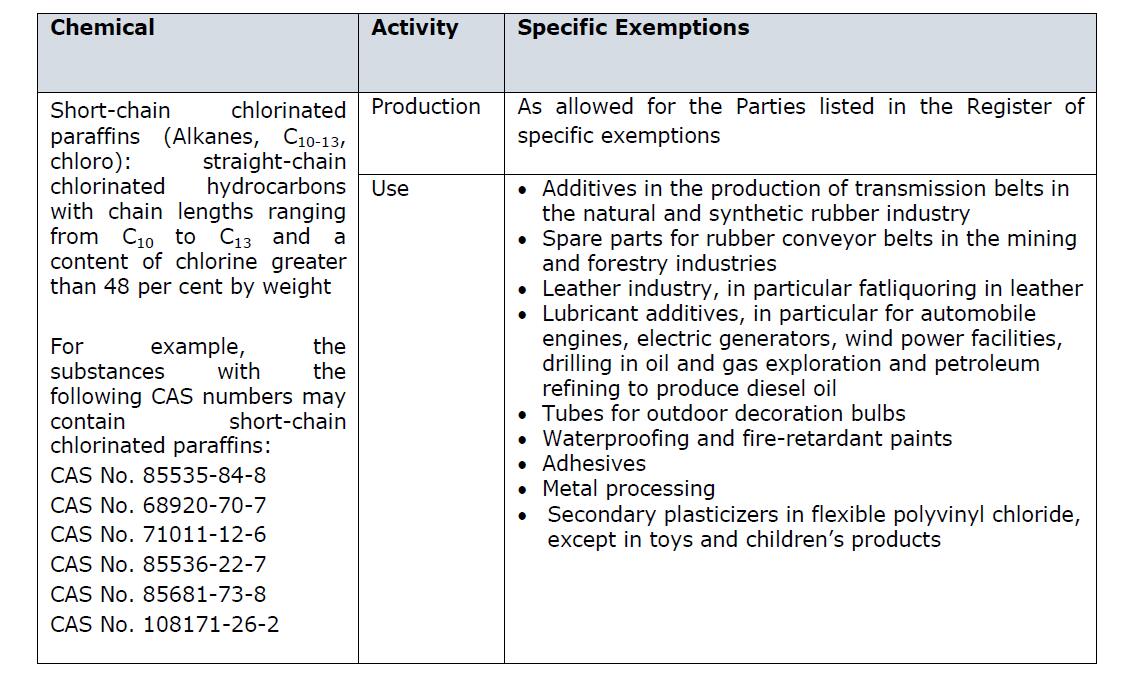Singapore's National Environment Agency (NEA) notified the WTO to ban Short-Chain Chlorinated Paraffins (SCCP) and products containing them. The new regulation will be announced officially in December 2017 and take effect in June 2018.
SCCP is a kind of persistent organic pollutant (POPs), which is used in lubricants for metal working applications and as a fire retardant or plasticizer in paints, sealant, rubber and polymers. According to Stockholm Convention Annex A on POPs, SCCP and its products, including their production, import, export and use will be phased out.

The specific exceptions, which are also laid out in the convention, apply if SCCPs are used in:
- Additives in the production of transmission belts in the natural and synthetic rubber industry
- Spare parts for rubber conveyor belts in the mining and forestry industries
- Leather industry, in particular, fatliquoring in leather
- Lubricant additives, in particular, for automobile engines, electric generators, wind power facilities, drilling in oil and gas exploration and petroleum refining to produce diesel oil
- Tubes for outdoor decoration bulbs
- Waterproofing and fire-retardant paints
- Adhesives
- Metal processing
- Secondary plasticizers in flexible polyvinyl chloride, except in toys and children's products
C&K Testing remind enterprises to pay attention to the revised regulation on POPs, and strengthen the cooperation with professional testing organizations to prevent the subsequent risk timely and effectively.
|Our Service : POPs Regulation Chemical Testing
